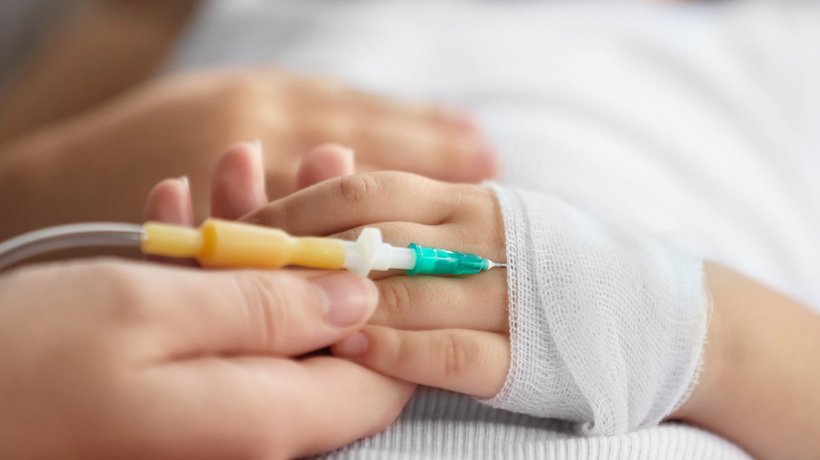Back in January 2020, life for Texas couple Josy and Dustin Baker was picture-perfect. The pair had just moved to a farm in Bells with their two little girls, Lylah and Adelaide, and were happy to spend life in the great outdoors.
“Lylah loves the cows. She loves running barefoot and playing with her cousins out in the little pond,” Dustin, 26, told PEOPLE in the latest issue of the magazine. “She was always very sweet, polite and so giggly.”
Tragically, the Bakers’ life took a tragic turn on May 31st, 2021, when Lylah, then 4-years-old, came down with a low-grade fever and a stomach ache, which the Bakers didn’t yet know was the start of a lasting nightmare. Lylah’s condition rapidly worsened, and within days she was hospitalized and unable to walk or hold her head up on her own. After several grueling weeks of testing that included a brain biopsy, the little girl was diagnosed with melioidosis, a rare disease which is caused by the bacterium Burkholderia pseudomallei.
“Our lives have turned upside down,” says Dustin.
Though Lylah’s family finally had a diagnosis, doctors were left baffled as to how the little girl could have been exposed to the bacteria, which is found only in Northern Australia and Southeast Asia.
It wasn’t until other cases were reported in Kansas, Minnesota and Georgia that the CDC was able to trace the source of the bacteria to an air-freshener spray called Better Homes & Gardens Lavender and Chamomile Aromatherapy Spray with Semi-Precious Gemstones.
The item, which was manufactured in South India, has since been recalled and the CDC is still investigating how it became contaminated. Authorities believe that the bacteria might have come from the water used in its production.
The family says that the air freshener had been purchased by Dustin’s mother about a month before Lylah fell ill. In an instance that only makes sense in hindsight, the family’s cat had knocked over the bottle and spilled it on the carpet before dying two weeks later.
“We didn’t know why then, but now we do,” says Dustin.
Other members of the baker family have been tested and have been found to carry antibodies to Burkholderia pseudomallei — but no one else has gotten sick. “They were exposed, but their bodies fought it off,” says Dustin.
Since her release from the hospital in August 2021, Lylah has been in an intense regiment of physical, speech, and occupational therapy eight times a week. The doctors and her family hope that she will one day be able to eat, talk, and walk on her own again. Josy quit her job as a veterinary assistant to care for Lylah, and the family started a GoFundMe campaign in order to raise money for her medical bills.
“You do anything for your kids,” says Josy. “I could not look back if I wanted to. This is where we are.”
At this point in her recovery, doctors say they are still unable to say for sure what Lylah’s future holds. Her parents are celebrating her small improvements and holding onto hope.
“When we make a joke, she’s smiling right along with us. It finally feels like Lylah is here,” says Josy. “She listens and hears everything we say and when we make a joke, she’s smiling right along with us. It just brightens our day.”

